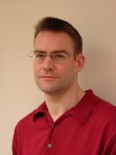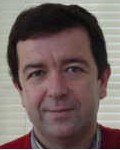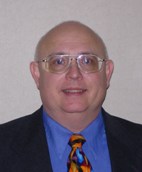|
Invited Talks
The conference has four invited talks from leading experts.
|
|
Correctness by Construction: Putting
Engineering into Software
(Tuesday 6th, 9:00 - 10:00)
Rod Chapman, Praxis HIS, UK
|
|
This
presentation will look at the many problems of designing and
building high-integrity software and the processes, languages
and tools that are currently used. The need to "engineer" our
software implies that discipline and reasoning are required, yet
most processes and languages seem to obstruct rather than assist
such attempts. To help understand why, we consider the history
of programming language design, and how this has shaped the way
we think about software and constrained our ability to engineer
it.
In this generally gloomy picture some good news can be found:
the emergence of design-by-contract facilities in languages such
as Eiffel and SPARK has made a strong impact in some niche areas.
In those areas, we have made a rather unusual observation:
customers (some having "flirted" with this week's fashionable
approach) are "coming back to Ada", recognizing the language's
strengths, particularly for high-integrity applications. The
presentation will close by considering why Praxis still uses
(and chooses) Ada, and the role that Ada has to play in the
future of high-integrity software.
|
|
Presenter:
 Roderick
Chapman received MEng and DPhil degrees from the University of
York, England in 1991 and 1995 respectively. He is currently
products manager at Praxis Critical Systems, leading the design
and development of the SPARK language and toolset. Before
joining SPARK team, Rod was involved in the implementation
high-integrity real-time and embedded systems, including SHOLIS
(the first system implemented to the Def Stan 00-55 SIL4
standard), the Lockheed Martin C130J Mission Computer, and the
MULTOS CA. Rod has presented tutorials, papers and panel
sessions at many conferences, including SIGAda, Ada Europe, and
SSTC. Roderick
Chapman received MEng and DPhil degrees from the University of
York, England in 1991 and 1995 respectively. He is currently
products manager at Praxis Critical Systems, leading the design
and development of the SPARK language and toolset. Before
joining SPARK team, Rod was involved in the implementation
high-integrity real-time and embedded systems, including SHOLIS
(the first system implemented to the Def Stan 00-55 SIL4
standard), the Lockheed Martin C130J Mission Computer, and the
MULTOS CA. Rod has presented tutorials, papers and panel
sessions at many conferences, including SIGAda, Ada Europe, and
SSTC.
|
|
Empirical Software Risk Assessment
Using Fault Injection
(Wednesday 7th, 9:00 - 10:00)
Henrique Madeira, University of Coimbra, Portugal
|
|
Component-based software development is a well-established
practice. Even mission-critical applications, where rigorous
verification and validation is mandatory, are now using
off-the-shelf (OTS) components and reusing previously developed
code. An important concern in using OTS components is the impact
of possible failures in theses components, as OTS components are
not generally designed for strict timing and/or safety-critical
environments. Furthermore, the new operational conditions
derived from component reuse may differ substantially from those
the components were initially designed for, which may expose
software faults that had not been disclosed before. Therefore,
the software industry needs practical and effective methods to
help estimating (and reducing) the risk of using OTS components
or helping in choosing the most reliable option when alternative
components are available.
This presentation describes a new
methodology for experimental risk assessment based on software
fault injection. The usual risk evaluation equation is used to
consider specific aspects evaluated by fault injection, such as
the probability of fault activation and fault impact, as well as
the use software complexity metrics to estimate the probability
of residual defects in software components. The injected faults
emulate typical programming errors using fault injection
operators derived from extensive field data study on software
faults. Examples of using the proposed approach in two different
systems representing realistic component-based applications
developed in Java and C and using OTS components such as RTEMS
real time operating system.
|
|
Presenter:
 Henrique Madeira is an
associate professor at the University of Coimbra. His main
research interests focus on experimental evaluation of
dependable computing systems, fault injection, error detection
mechanisms, and transactional systems dependability, subjects on
which he has authored or co-authored more than 90 papers in
refereed conferences and journals. He has coordinated or
participated in tens of projects funded by the Portuguese
government and by the European Union. Henrique Madeira was the
Vice-Chair of the IFIP Working Group 10.4 Special Interest Group
(SIG) in Dependability Benchmarking from the establishment of
the SIG in the summer of 1999 until 2002. He has organized
several Workshops and scientific events and was the Program
Co-Chair of the International Performance and Dependability
Symposium track of the IEEE/IFIP International Conference on
Dependable Systems and Networks, DSNPDS2004. He has also been
asked to be referee for many international conferences and
journals and he has served on program committees of the major
conferences of the dependability and database areas. Henrique
Madeira is co-developer of several fault injection too such as
RIFLE and Xception, which have been used in several universities
worldwide and in space agencies such as INPE, ESA, and NASA. He
is a co-founder of the company Critical Software, SA. Henrique Madeira is an
associate professor at the University of Coimbra. His main
research interests focus on experimental evaluation of
dependable computing systems, fault injection, error detection
mechanisms, and transactional systems dependability, subjects on
which he has authored or co-authored more than 90 papers in
refereed conferences and journals. He has coordinated or
participated in tens of projects funded by the Portuguese
government and by the European Union. Henrique Madeira was the
Vice-Chair of the IFIP Working Group 10.4 Special Interest Group
(SIG) in Dependability Benchmarking from the establishment of
the SIG in the summer of 1999 until 2002. He has organized
several Workshops and scientific events and was the Program
Co-Chair of the International Performance and Dependability
Symposium track of the IEEE/IFIP International Conference on
Dependable Systems and Networks, DSNPDS2004. He has also been
asked to be referee for many international conferences and
journals and he has served on program committees of the major
conferences of the dependability and database areas. Henrique
Madeira is co-developer of several fault injection too such as
RIFLE and Xception, which have been used in several universities
worldwide and in space agencies such as INPE, ESA, and NASA. He
is a co-founder of the company Critical Software, SA.
|
|
Model Driven Technologies in
Safe-aware Software Applications
(Thursday 8th, 9:00 - 10:00)
Miguel Angel de Miguel, Technical University of Madrid, Spain
|
|
Safety
critical software components require complex development
processes, and the early evaluation of software architectures is
a basic mean for the reduction of safety critical software costs.
In Model Driven Developments (MDD) models are on the critical
path of software development. MDD assumes a sequence of
development based on different types of models, in general
platform independent and platform specific. But safety critical
software applies some other types of models that provide support
for the verification of safety characteristics. The integration
of different modeling approaches reduces problems of
inconsistencies and model development costs, but this
integration requires the adaptation of traditional MDD model
paths, and some tool integration support.
MDD infrastructures (e.g. Meta Object Facilities and UML
extensions) provide facilities to support the integration of
safety critical modeling methods. But some improvements are
needed; these improvements include the invocation of services in
other tools, and solutions to interchange modeling tools
components that adapt model driven facilities to domains and
technologies.
|
|
Presenter:
 Miguel
A. de Miguel is associate professor at the Technical University
of Madrid, in the Telecommunications School. He got his PhD in
this university and he has collaborated as research visitor at
the University of Illinois in Urbana-Champaign and INRIA and he
has been working several years in Thales Research and Technology.
Mr de Miguel has been chairman in some OMG standardization
groups. Miguel
A. de Miguel is associate professor at the Technical University
of Madrid, in the Telecommunications School. He got his PhD in
this university and he has collaborated as research visitor at
the University of Illinois in Urbana-Champaign and INRIA and he
has been working several years in Thales Research and Technology.
Mr de Miguel has been chairman in some OMG standardization
groups.
His research interests include the description of modelling
notations for the specification and development of high
integrity systems, and the integration of these notations in
software development cycles.
|
|
I Have a Dream: ICT Problems We All Face
(Tuesday 6th, 17:30 - 18:00)
John L. Hill, Sun Microsystems, USA
|
|
This presentation is a call to
action addressing five macro problems affecting practically
every aspect of the information and communications technology
industry. The inertia of the installed base of code, software
quality, increasing complexity, intellectual property rights
practices, and the methods of teaching software technologies
each impede the progress of Mankind throughout the world.
Radical improvement is needed. The presentation proceeds by
making disturbing recommendations about cooperation in the
marketplace, elimination of vulnerabilities in programming
languages, application of high-order software development
methods, innovation, and education about software.
|
|
Presenter:
 John Hill has spent 30 years in
the Information and Communications Technology industry with the
past 18 years in industry standards. He is currently employed by
Sun Microsystems, where he is responsible for implementing
strategies to improve the efficiency and effectiveness of ICT
standardization. John Hill has spent 30 years in
the Information and Communications Technology industry with the
past 18 years in industry standards. He is currently employed by
Sun Microsystems, where he is responsible for implementing
strategies to improve the efficiency and effectiveness of ICT
standardization.
While with Sun Microsystems, AMP, Compaq, and Unisys, Hill
obtained extensive experience in industry standards, software
and hardware engineering, data processing operations, strategic
marketing, and technical negotiation. He has influenced industry
standards for computer programming languages and operating
systems. Throughout his career, Hill has participated actively
and held numerous elected positions in a wide range of
standardization organizations including ECMA, JTC 1/ SC22,
INCITS, JTC 1 TAG, IEEE, and VITA.
Hill has received numerous awards including the 1998 National
Committee for Information Technology Standards Chairman’s Award,
the IEEE Certificate of Appreciation (1996), and The Wall Street
Journal Award in 1971 for a research paper entitled “The
Economic Cost of the Oil Import Quota, 1959-1970.”
|
|
|
|
|
|
